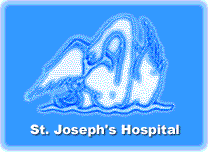If your baby has major needs, he/she may be admitted to a children's hospital. This type of hospital has health care specialists and advanced equipment to deal with the complex conditions that your baby may have.
If you live in a community with a children's hospital, you should choose a pediatrician or primary care doctor who admits patients to that hospital. Then your doctor can admit your baby when needed and communicate with the many specialists who will work with your baby.
You should also contact the hospital about such services as:
- parents staying overnight
- parking rates and passes
- visiting hours
- brother or sister visits
- lodging for parents from out of town
eg., special rates at hotels.
If you do not live near a children's hospital, your baby may be admitted to your local hospital pediatric ward/unit or children's ward/unit if there is one. Find out if your hospital has these facilities and if not, find out where the nearest hospital is with pediatric or children's facilities.
Contact the person in charge of the children's ward before your baby needs to be admitted. The staff will then be aware of your baby's needs and you will be aware of how the hospital does things and what you can do if your baby is admitted.
|

